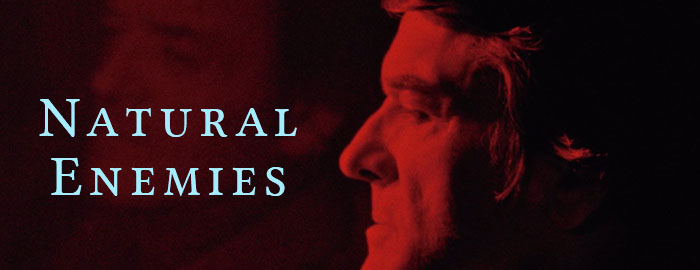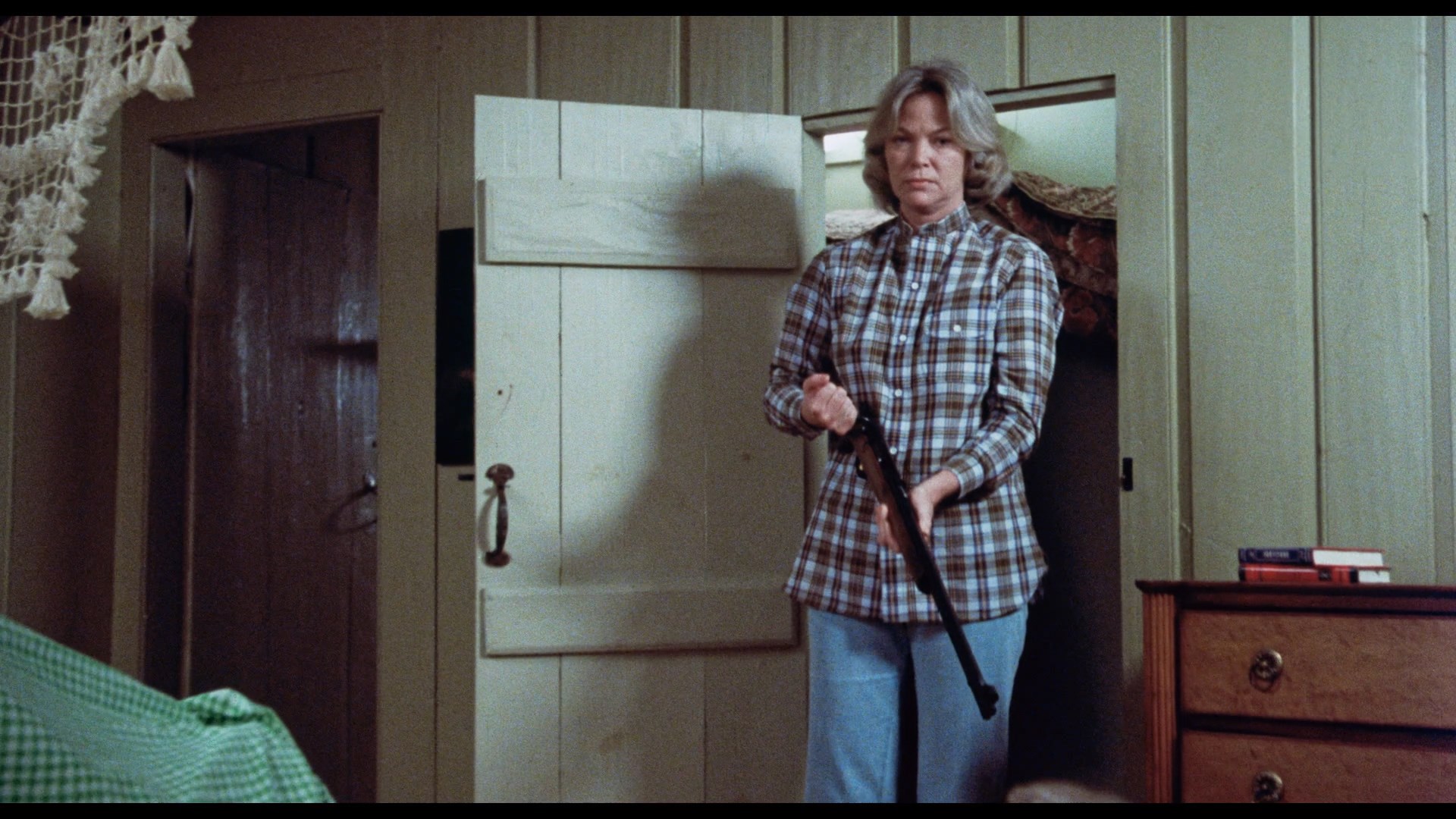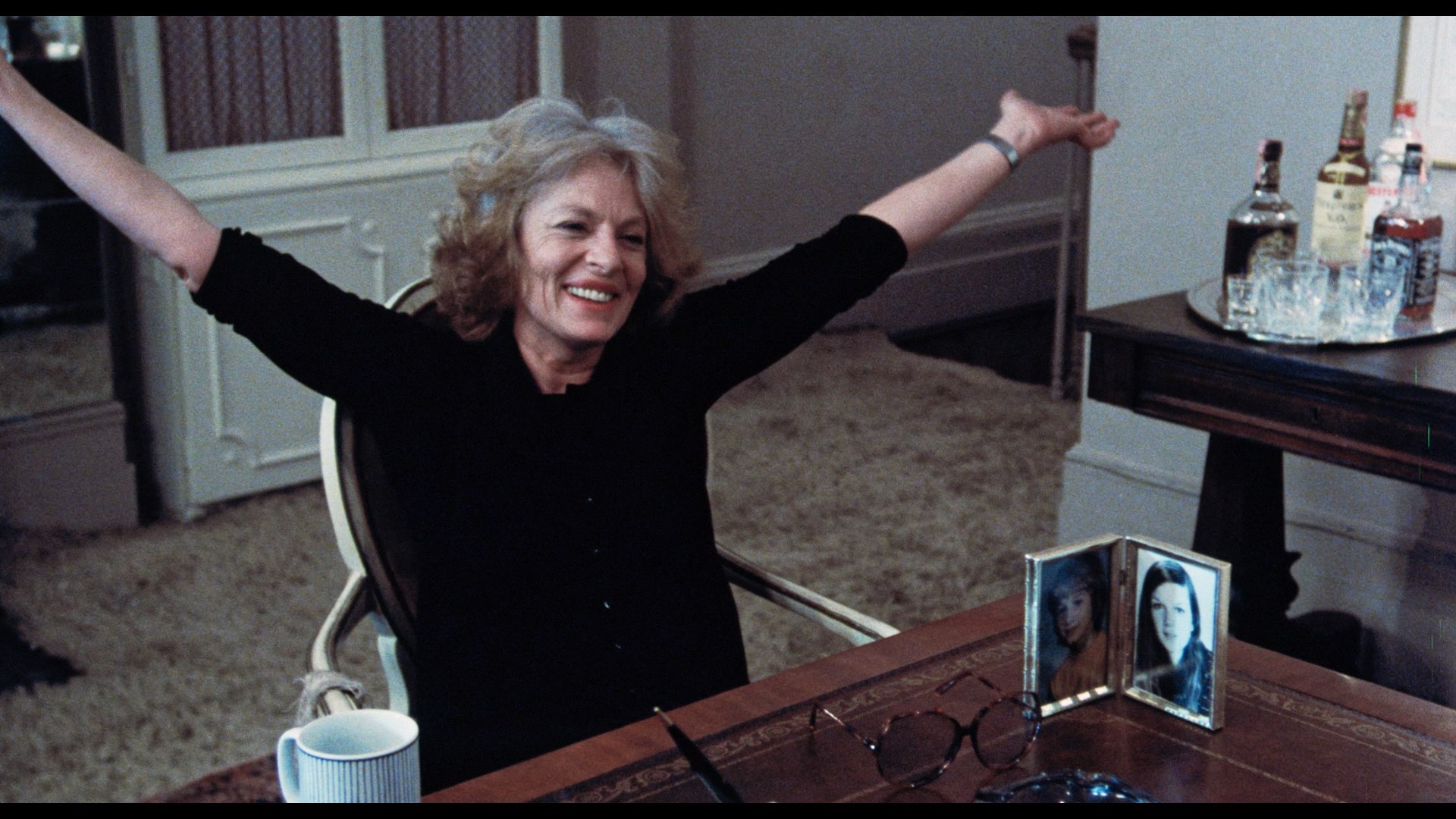



 grim upon its release in 1979 but painfully familiar today, Natural Enemies barely
grim upon its release in 1979 but painfully familiar today, Natural Enemies barely  made a blip during its brief major city theatrical run but left its mark on more than a few unprepared rental customers in the late '80s on VHS. In a sense this is the darkest chapter in a series of Hal Holbrook performances about the savagery seething inside of the middle-aged everyman, the logical companion to his roles in Rituals and Creepshow (with the latter's Viveca Lindfors turning up here briefly before her legendary turn as Aunt Bedelia). Seen today, this feels like a primer for the later psychological apocalypses found in films by the likes of Lars von Trier, Jörg Buttgereit, Pascal Laugier, Michael Haneke, and Douglas Buck, though its atmosphere could only have come from the end of a wild decade that was leaving many families feeling completely unmoored.
made a blip during its brief major city theatrical run but left its mark on more than a few unprepared rental customers in the late '80s on VHS. In a sense this is the darkest chapter in a series of Hal Holbrook performances about the savagery seething inside of the middle-aged everyman, the logical companion to his roles in Rituals and Creepshow (with the latter's Viveca Lindfors turning up here briefly before her legendary turn as Aunt Bedelia). Seen today, this feels like a primer for the later psychological apocalypses found in films by the likes of Lars von Trier, Jörg Buttgereit, Pascal Laugier, Michael Haneke, and Douglas Buck, though its atmosphere could only have come from the end of a wild decade that was leaving many families feeling completely unmoored. then decides to indulge in a tryst with five prostitutes who have some clear ideas of their
then decides to indulge in a tryst with five prostitutes who have some clear ideas of their  own about his domestic situation. Meanwhile Miriam finds the rifle hidden in their closet, setting up a pivotal evening for them both.
own about his domestic situation. Meanwhile Miriam finds the rifle hidden in their closet, setting up a pivotal evening for them both. Kanew (who went on to direct far more mainstream fare like Revenge of the Nerds, Eddie Macon's Run, Troop Beverly Hills,
Kanew (who went on to direct far more mainstream fare like Revenge of the Nerds, Eddie Macon's Run, Troop Beverly Hills,  and Gotcha!) turns up for a quick video intro (2m10s) about the inspiration of Ingmar Bergman's Scenes from a Marriage and the film's descent into oblivion for decades, as well as the two-part "The Road to Natural Enemies" (23m18s and 44m18s) video interview. Here he goes into great detail about the impact of early films he saw like The Dark Mirror, his time working for a trailer house, his time in exploitation films directing Mail Order Confidential and working on The Wicked Die Slow, an experiment involving the trailer for The Graduate, the creation of his Harlem documentary Black Rodeo narrated by Woody Strode, his editing gig on Ordinary People, and a massive amount about the making of this film from source novel adaptation to the release including the alteration of its ending, the near departure of one of its stars, and some very funny trivia about the hooker scene. An excellent and well-researched new audio commentary by Bill Ackerman of the Supporting Characters podcast starts off noting the interpolation of Bergman into American films throughout the '70s before deeply pulling apart the film's visual language, the state of American criminal cases in the late '70s, notes on even the briefest screen performers, the film's fate at the box office and release through Cinema 5, the tropes of midlife crisis and New York stories, the depictions of chauvinism here, and the source novel by Julius Horowitz. Also included are that alternate ending and the theatrical trailer, while the package comes with an insert booklet featuring a new essay by Jason Bailey about the film and its reflection of misplaced rage and a country going through a very tumultuous transition.
and Gotcha!) turns up for a quick video intro (2m10s) about the inspiration of Ingmar Bergman's Scenes from a Marriage and the film's descent into oblivion for decades, as well as the two-part "The Road to Natural Enemies" (23m18s and 44m18s) video interview. Here he goes into great detail about the impact of early films he saw like The Dark Mirror, his time working for a trailer house, his time in exploitation films directing Mail Order Confidential and working on The Wicked Die Slow, an experiment involving the trailer for The Graduate, the creation of his Harlem documentary Black Rodeo narrated by Woody Strode, his editing gig on Ordinary People, and a massive amount about the making of this film from source novel adaptation to the release including the alteration of its ending, the near departure of one of its stars, and some very funny trivia about the hooker scene. An excellent and well-researched new audio commentary by Bill Ackerman of the Supporting Characters podcast starts off noting the interpolation of Bergman into American films throughout the '70s before deeply pulling apart the film's visual language, the state of American criminal cases in the late '70s, notes on even the briefest screen performers, the film's fate at the box office and release through Cinema 5, the tropes of midlife crisis and New York stories, the depictions of chauvinism here, and the source novel by Julius Horowitz. Also included are that alternate ending and the theatrical trailer, while the package comes with an insert booklet featuring a new essay by Jason Bailey about the film and its reflection of misplaced rage and a country going through a very tumultuous transition.![]()